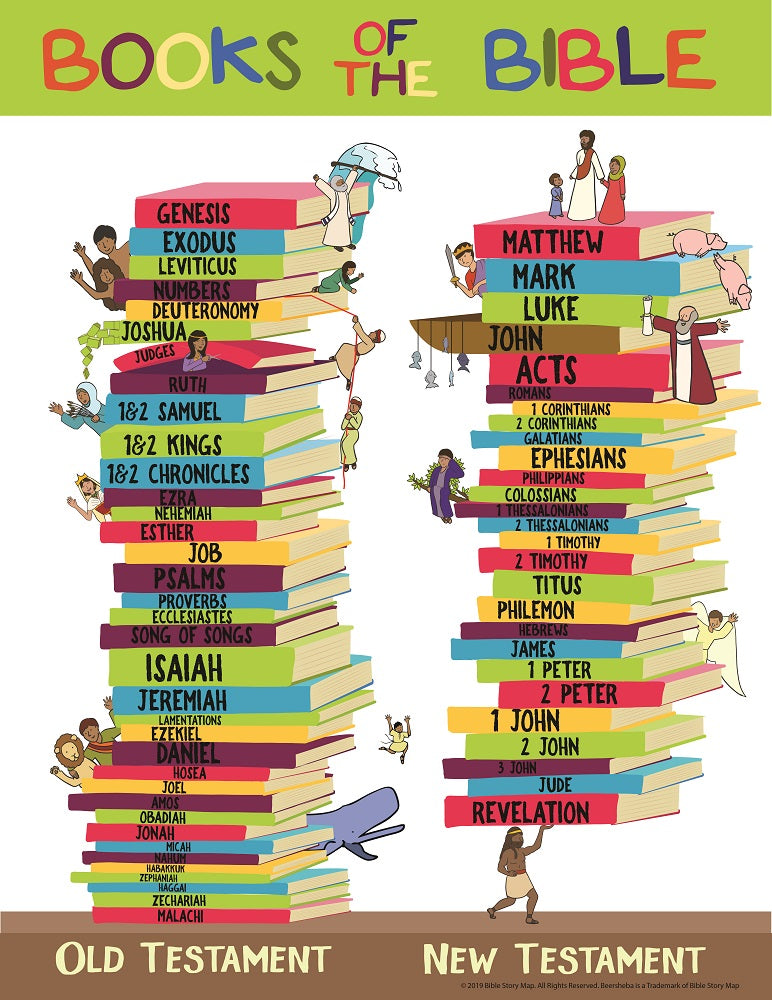Who Wrote The Bible Old Testament

The Old Testament, a foundational text of the Abrahamic religions, is a collection of sacred writings that form the first part of the Christian Bible and the entirety of the Hebrew Bible. Comprising a diverse array of texts, including historical narratives, laws, poems, and prophetic visions, the Old Testament offers a rich tapestry of stories, characters, and divine encounters that have shaped religious and cultural traditions for millennia.
Understanding the authorship of the Old Testament is a complex endeavor due to its multifaceted nature and the historical context in which it was composed. While the Bible itself provides limited explicit information about its authors, biblical scholars and historians have pieced together a narrative based on textual analysis, historical records, and archaeological findings.
The Mosaic Authorship Tradition

One of the most enduring traditions regarding the authorship of the Old Testament is the Mosaic authorship theory. According to this belief, held by many Jews and Christians throughout history, the first five books of the Old Testament - Genesis, Exodus, Leviticus, Numbers, and Deuteronomy - were authored by Moses, a key figure in the Hebrew Bible and the founder of the Israelite nation.
The Mosaic authorship theory is supported by internal references within the Bible itself. For instance, Exodus 17:14 mentions that Moses wrote certain events down at God's command. Additionally, the Talmud, a central text of Rabbinic Judaism, attributes the entire Torah (the first five books of the Old Testament) to Moses.
However, modern biblical scholarship challenges this traditional view. Textual analysis and historical criticism have led scholars to propose that the Pentateuch (the first five books) was likely composed over an extended period, with contributions from multiple authors and redactors.
The Documentary Hypothesis

The Documentary Hypothesis, a theory widely accepted in modern biblical scholarship, proposes that the Pentateuch is a compilation of several independent sources, each with its own unique characteristics and perspectives.
- The Yahwist source, also known as the J source (from the German Jahweh, referring to God), is characterized by the use of the divine name Yahweh and a personal, anthropomorphic portrayal of God. This source is believed to have been composed in the southern kingdom of Judah, possibly around the 10th century BCE.
- The Elohist source, denoted as E, primarily uses the term Elohim to refer to God and tends to portray God as more distant and less anthropomorphic. It is thought to have originated in the northern kingdom of Israel, perhaps around the same time as the Yahwist source.
- The Priestly source, labeled P, focuses on ritual and legal matters and is characterized by an impersonal, formal style. This source is believed to have been added later, possibly during the Babylonian exile in the 6th century BCE.
- The Deuteronomist source, or D, is a distinct narrative strand found primarily in the book of Deuteronomy. It emphasizes the covenant between God and Israel and is thought to have been composed in the 7th century BCE.
According to the Documentary Hypothesis, these sources were combined and redacted by later editors, known as redactors, to form the Pentateuch as we know it today. This process of redaction and editing is believed to have continued over centuries, resulting in the final form of the text.
Other Authors and Sources
Beyond the Mosaic tradition and the Documentary Hypothesis, various other authors and sources have contributed to the Old Testament. Here are some key contributors and their roles:
The Prophets
Many of the prophetic books, such as Isaiah, Jeremiah, and Ezekiel, are attributed to the prophets themselves. These books contain divine messages and prophecies delivered by these ancient figures.
Historical Writers
Books like 1 and 2 Samuel, 1 and 2 Kings, and 1 and 2 Chronicles provide historical narratives of the Israelite and Judean kingdoms. While the authors are not explicitly named, biblical scholars believe these books were compiled from various sources by unknown writers.
Poetic and Wisdom Literature
The Psalms, Proverbs, and other poetic books are often attributed to specific authors or groups, such as David, Solomon, and anonymous writers known as the "sons of Korah."
The Exile and Post-Exilic Period
The period of the Babylonian exile and the subsequent return to Judah saw the composition of several books, including Ezra, Nehemiah, and parts of Daniel. These books reflect the religious and cultural concerns of the post-exilic Jewish community.
The Legacy of the Old Testament Authors
The authors of the Old Testament, whether known or anonymous, have left an indelible mark on human history and culture. Their writings have shaped religious beliefs, ethical systems, and literary traditions, influencing countless generations of readers and thinkers.
Despite the complexities and debates surrounding authorship, the Old Testament remains a cornerstone of faith and a source of inspiration for millions. Its enduring legacy continues to inspire theological reflection, ethical discourse, and cultural exploration.
Conclusion

The question of who wrote the Old Testament is a fascinating journey into the ancient world and the rich tapestry of human religious expression. While we may never have definitive answers, the study of biblical authorship offers a unique window into the minds and hearts of those who shaped the foundations of Western religious traditions.
| Book | Author |
|---|---|
| Genesis | Moses (traditional), Multiple Authors (scholarly) |
| Exodus | Moses (traditional), Multiple Authors (scholarly) |
| Leviticus | Moses (traditional), Priestly Source (scholarly) |
| Numbers | Moses (traditional), Multiple Authors (scholarly) |
| Deuteronomy | Moses (traditional), Deuteronomist Source (scholarly) |

Who wrote the Book of Genesis?
+The Book of Genesis, traditionally attributed to Moses, is now believed by scholars to have been composed by multiple authors over an extended period. This conclusion is based on textual analysis and the diverse literary styles and perspectives found within the book.
What is the significance of the Mosaic authorship tradition?
+The Mosaic authorship tradition holds significant religious and cultural importance, as it attributes the foundational texts of the Hebrew Bible to a revered figure in Jewish and Christian traditions. This belief has shaped religious interpretation and understanding for millennia.
How does the Documentary Hypothesis explain the authorship of the Pentateuch?
+The Documentary Hypothesis proposes that the Pentateuch is a compilation of four distinct sources: the Yahwist, Elohist, Priestly, and Deuteronomist sources. These sources, each with its own unique characteristics, were combined and redacted by later editors to form the final text.



